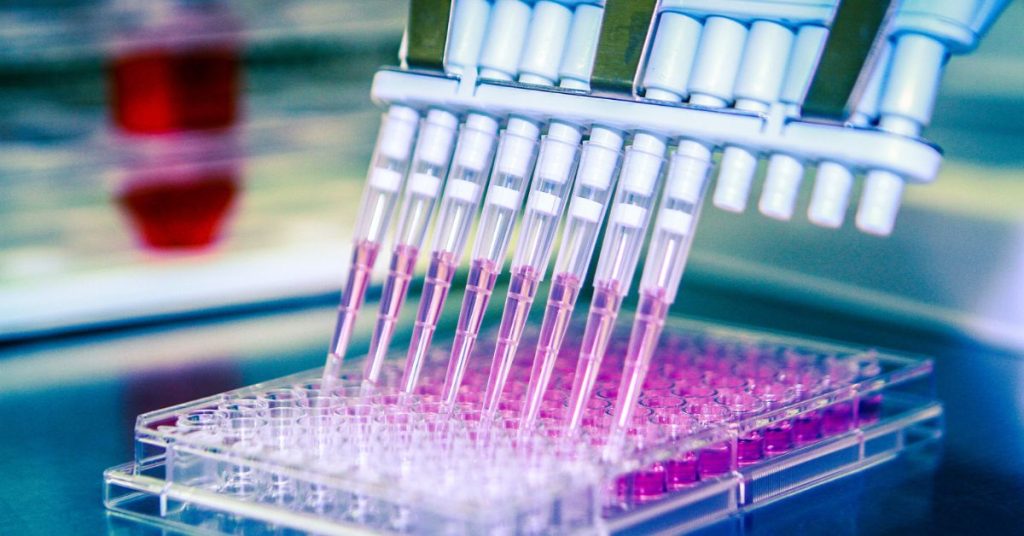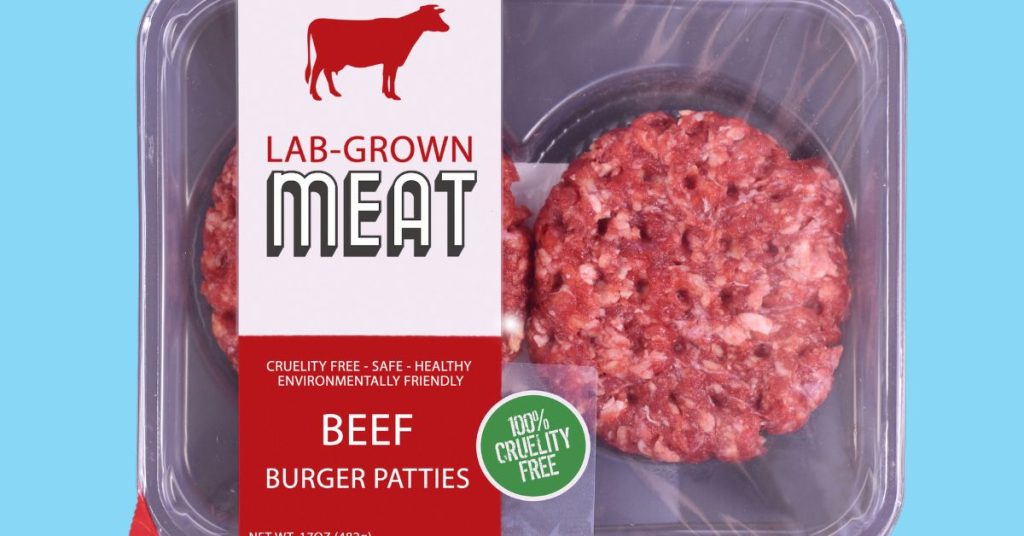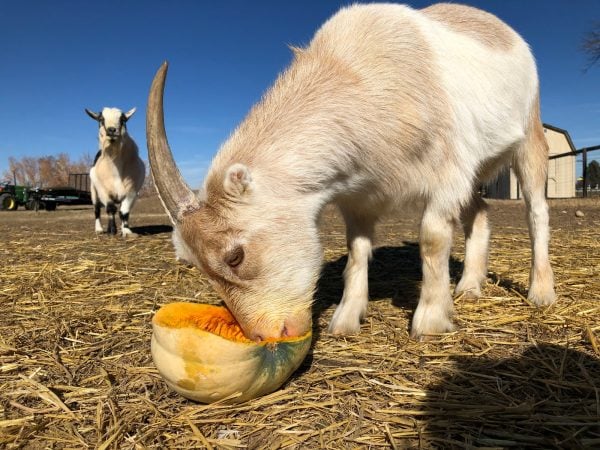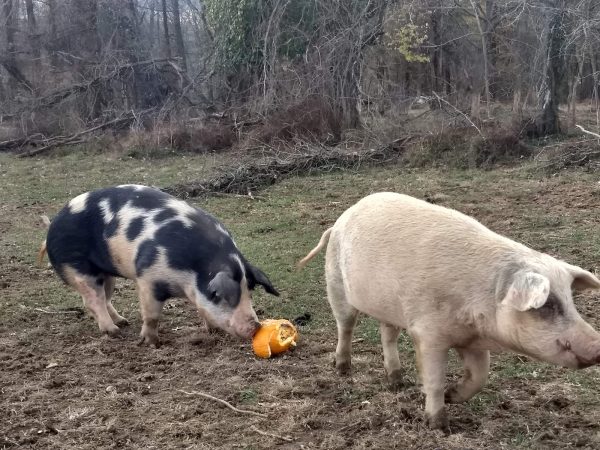What Is Cell-Cultured Meat?
Imagine wanting a burger and having it materialize in front of your eyes. It would be as easily as printing a page from your computer. Well, you no longer have to imagine it. An Israeli-based company called Believer Meats is one of the largest companies producing lab-grown meat with non-GMO animal cells. The company is commencing its first U.S. commercial facility in Wilson, North Carolina. It has the capacity to cultivate 10,000 metric tons of lab-grown meat. Best of all, the company is reducing harm to animals. It is respectful of the ecological environment and is about to change the industry.
Cell-cultured meat no longer lives in the minds of science fiction television writers. Instead, it is genuine meat produced using animal cell culture technology. The procedure includes animal cells using a combination of biotechnology, tissue engineering, molecular biology, and synthetic processes.

The process begins with taking stem cells from an animal and then growing them in bioreactors. These cells are given exactly what they need to grow in an animal body. This includes an oxygen-rich cell culture medium made up of basic nutrients such as amino acids, glucose, vitamins, and inorganic salts and supplemented with proteins and other growth factors. The cells are then cued to differentiate into the skeletal muscle, fat, and connective tissues that make up meat. It’s then harvested, prepared, and packaged into final products.
The entire process takes anywhere between 2 to 8 weeks. It all depends on what kind of meat is being cultivated. Some companies are even pursuing a similar strategy to create milk and other dairy products.
Is It Vegan?
Cultivated meat is actually meat. They are made from cells taken from real animals, so it’s not vegan.
The target market for cell-cultured meat isn’t vegans or vegetarians. It is designed to appeal to omnivorous consumers. However, the process doesn’t require animals to be inhumanely slaughtered the way traditional meat does. Cultured meat avoids many of the environmental harms of conventional livestock. The technology could put an end to factory farming. This would reduce the amount of methane (a greenhouse gas 80 times more potent at warming than carbon dioxide) being added to the atmosphere. It can also save up to 74 trillion gallons of water per year in the U.S. alone. Market reports say that lab-grown meat is one of the most sustainable and carbon-improved alternatives to conventional meat production. It reduces 7-45% lower energy, 78-96% reduction of GHG footprint, 99% lower land, and 82-96% lower water.
The goal of switching omnivores from slaughtered farm meat to cultivated meat is to create a more ecologically friendly and humane meat industry. The goal isn’t to get vegans and vegetarians on board with eating cellular meat.
The hope is to encourage meat eaters and flexitarians to stop consuming meat from conventionally-raised farm animals and eat cell-cultivated meat instead. The current industry remains reliant on keeping animals in the supply chain. However, the reliance is reduced to minimal levels and virtually eliminates the animal suffering and public healthcare concerns raised by Confined Animal Feeding Operations (CAFOs). Cell-cultivated meat doesn’t ask anyone to give anything up but ultimately leaves out the negative impact factory farms have on the environment and animal welfare.
The Future of Cell-Cultured Meat
Not everyone is on board with the idea of lab-grown meat. Misunderstanding of the science and the “perceived unnaturalness” of cultured meat is a big factor in its rejection. The negative attitude toward lab-grown food is the one thing preventing revolutionary technology from being widely adopted by the masses. Fear and lack of science education are what hold naysayers back from adopting the technology. However, there is hope for progress to flourish.
The growth of this market is backed by the growing focus on animal welfare. There is also an increasing demand for animal-based processed food products and for allergen-free foods. Cultivated meat is already being legally sold to consumers in Singapore after the first beef burger was produced in 2013 in the UK. In November 2022, the US Food and Drug Administration officially announced that a lab-grown meat product is safe to eat. This establishes the first steps in giving the go-ahead for startups to produce and sell their products as early as this year.
Startups from Japan to Israel and Australia are honing their products. Everything from lab-grown beef steaks to sushi-grade salmon is being created. Even cultivated foie gras is in the works, giving a sign that high-end consumers will be the first to try these innovations. According to a new market research report titled “Lab-grown Meat Market” by Meticulous Research, the lab-grown or cultured meat market is projected to reach $1.99 billion by 2035, at a CAGR of 21.4% from 2025 to 2035.
The global livestock industry being subjected to intense scrutiny due to the scale of its environmental, ethical, and human health impacts is a huge indication that well-informed consumers will either ditch meat for plant-based alternatives or switch to a more humane option. The evolution from archaic meat production is already happening.
The only question remaining is, if you do eat meat, would you try cell-cultured meat?
By Jasmine Lowe
Works Cited:
Meticulous Market Research Pvt. Ltd. 21 Nov 2022. Lab-grown Meat Market to Reach $1.99 Billion By 2035, at a CAGR of 21.4% from 2025 to 2035 – Market Size, Share, Forecasts, & Trends Analysis Report with COVID-19 Impact by Meticulous Research.
US Food and Drug Administration. 16 Nov 2022. Human Food Made with Cultured Animal Cells.
US Food and Drug Administration. 16 Nov 2022. FDA Completes First Pre-Market Consultation for Human Food Made Using Animal Cell Culture Technology.
SUBSCRIBE TO OUR NEWSLETTER
Vkind Vibes is our popular weekly newsletter where we share the latest news, tastiest recipes, and hottest trends impacting the VegEconomy. SUBSCRIBE NOW!
WANT MORE?
JOIN US AT VKX 2023! The Vkind Experience (VKX) is an immersive plant-based event celebrating travel, culture, and cuisine around the world as guests explore 11 experiential rooms while sampling an elevated fusion of world flavors.JOIN THE VKIND COMMUNITY Download the Vkind app on the App Store or Google Play to create your social profile and start sharing reviews of vegan businesses, watch original content, and explore the plant-based world with your friends!
JOIN THE VEGECONOMY Are you a vegan brand owner or professional? Add your listing to our business search platform to get more eyes on your vegan enterprise.
TAKE THE VEGECONOMY PLEDGE Take the VegEconomy Pledge to show support for sustainable business practices and make a commitment to Spend Like You Give A Damn.
WATCH & LEARN Subscribe to our YouTube channel for our latest shows, live events, interviews, videos, news, secret giveaways & more!
STREAM “PEELED”, THE ALL-VEGAN COOKING COMPETITION SHOW Produced by Vkind Studios in a limited 3-part web series, Peeled is the award-winning all-vegan cooking competition show that’s on a search to find “America’s Hottest Vegan Chef”.
FOLLOW & SHARE Our content is always entertaining, educational, and inclusive. Follow us everywhere on social media!
SHARE VEGAN RECIPES Share your delicious vegan recipes with the Vkind Community on our app and website.

















